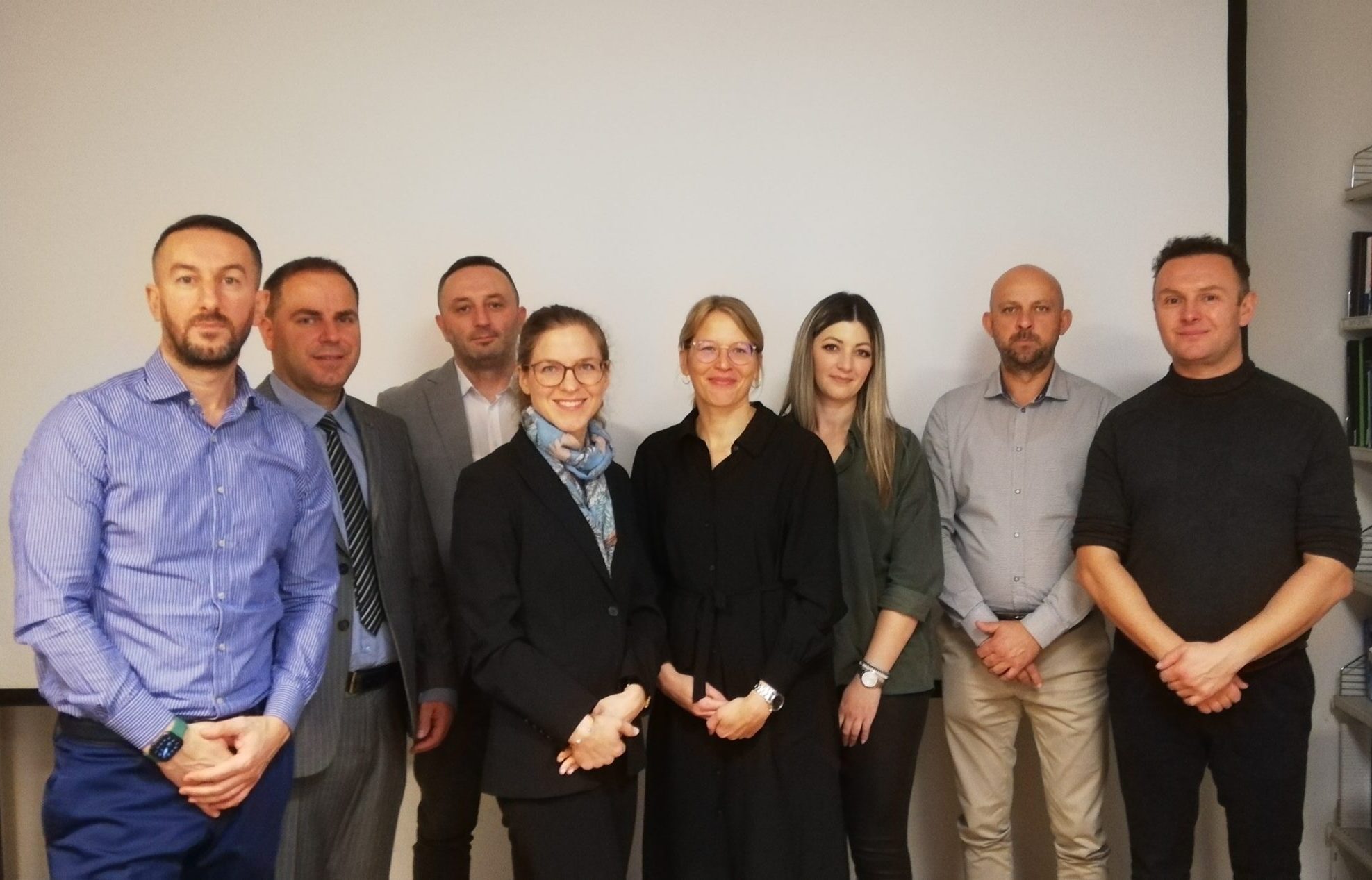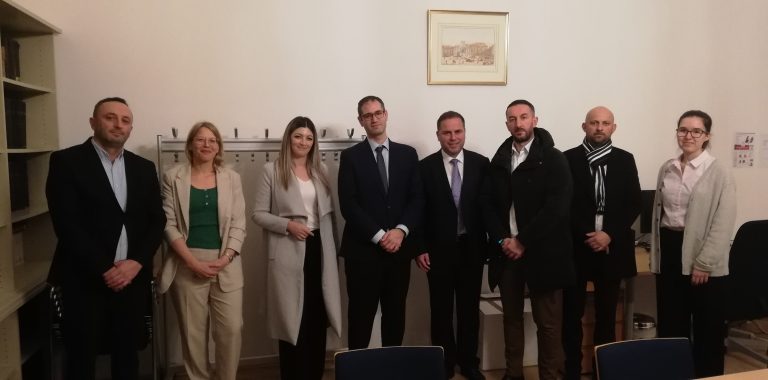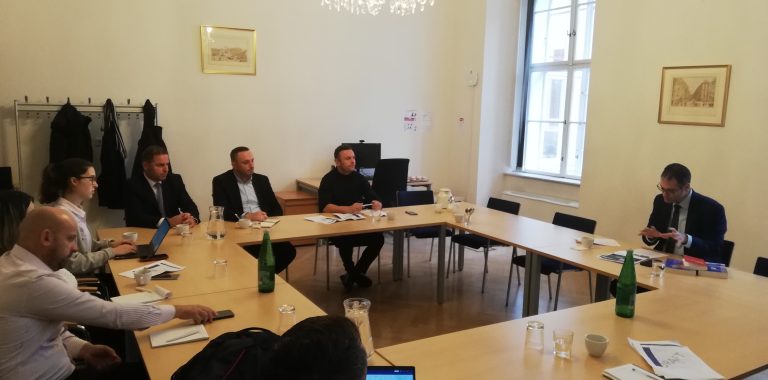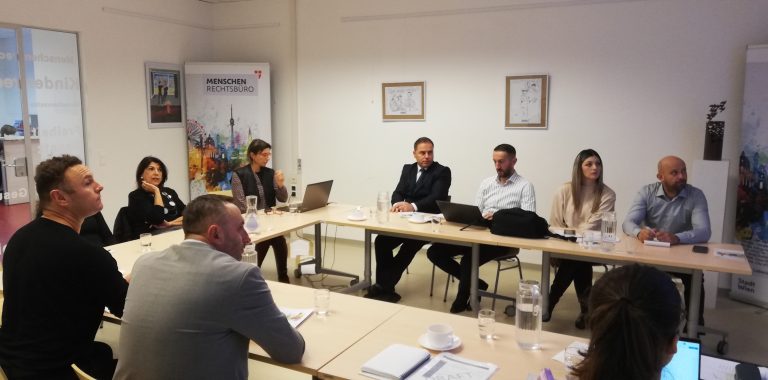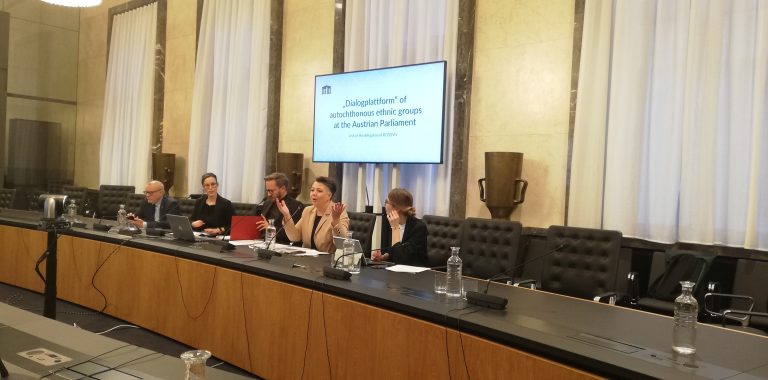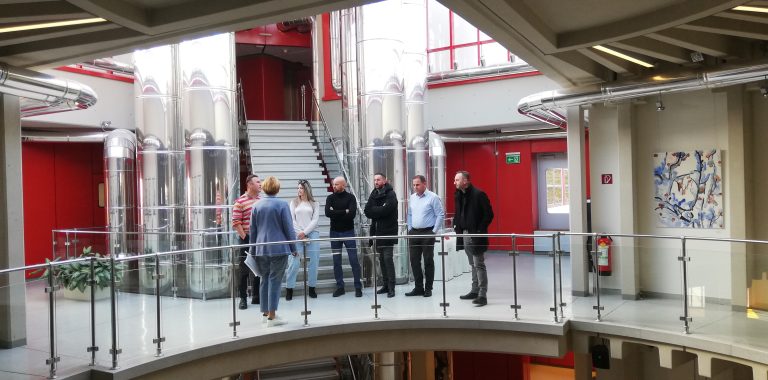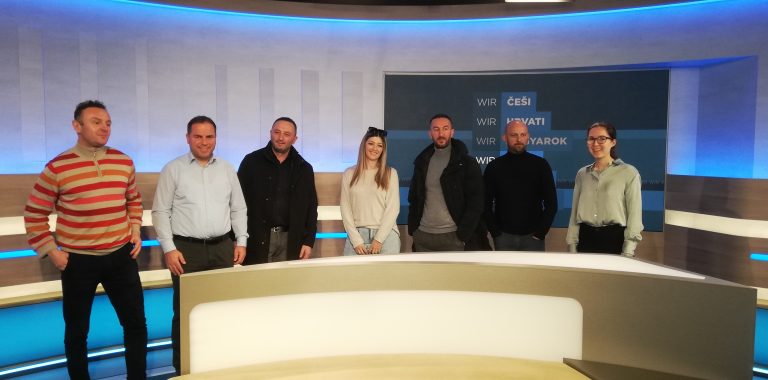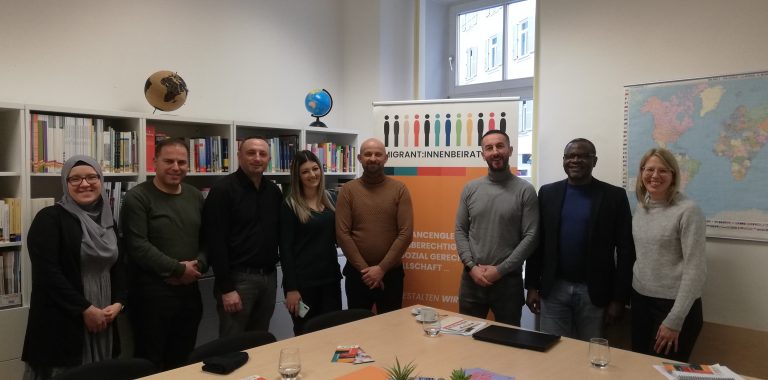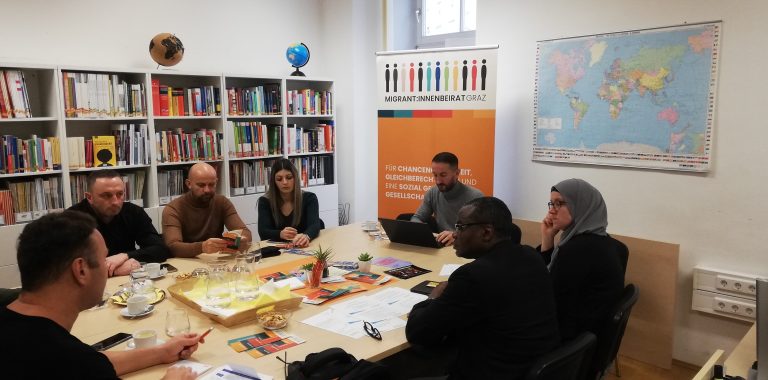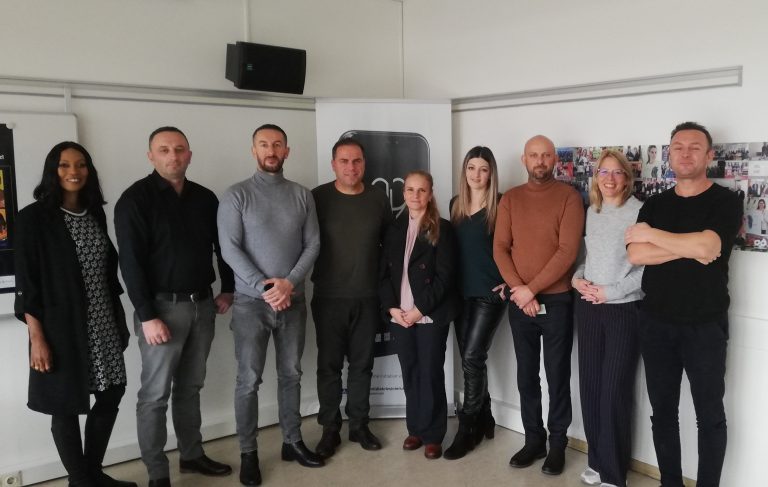Kosovar Delegation Visiting: An Exchange of Strategies for the Protection of Minorities
The Ludwig Boltzmann Institute of Fundamental and Human Rights provided insights into various Austrian institutions dedicated to the protection of minorities.
A delegation of the Kosovar Ministry of Community and Returns visited various Austrian institutions from 20 to 24 November 2023 and thus gained insight into the protection of minorities and ethnic groups in Austria.
The week began with a meeting at the Ludwig Boltzmann Institute of Fundamental and Human Rights (LBI-GMR), where the participants were informed about the work and the organisational structure of the institute as well as the legal situation and challenges regarding the protection of minorities in Austria. Among other things, the focus was on the scope of the National Minorities Act and the tension between anti-discrimination and the protection of minorities. During the subsequent exchange, the delegation noted that it would commend the establishment of an institution comparable to the LBI-GMR in Kosovo. In addition to already existing bodies for the ad hoc combat of human rights violations, this could create a structure for their prevention.
In the afternoon, the participants were received by the Romano Centro, the organisation representing the interests of Roma living in Austria. The Romano Centro presented its initiatives to curb discrimination and improve the living conditions of the Roma and discussed the history of the Roma in Austria. The importance of the centre’s work was illustrated by comparing the total number of Roma groups in Austria with the comparatively small number of Roma protected by the Ethnic Groups Act. An important achievement was the educational support for Roma children, which has, to date, only been possible on a small scale due to staff shortages.
The second day comprised a visit to the Federal Ministry for European and International Affairs, where the delegation attended a presentation on issues regarding the international protection of ethnic groups and minorities. The presentation provided an insight into the historical background of the multi-ethnic state of Austria, the adoption of the Ethnic Groups Act and the nature of bilateral relations in the context of the protection of minorities. One of the topics discussed was the political participation of minorities, which is ensured by means of the Ethnic Groups Advisory Board in the Austrian parliament.
Day three began at Vienna’s Human Rights Office, which is entrusted with the task of coordinating all human rights work in Vienna and realising human rights at the local level in accordance with the declaration “Vienna – City of Human Rights”. The participants noted that although all the international treaties mentioned in the presentation were incorporated into the Kosovar constitution, there was still a lack of initiatives at the local level.
In the afternoon, the delegation was received at the Austrian Parliament, where they learned about the dialogue platform of Austrian autochthonous minorities, which facilitates exchange between the parliamentarians and the representatives of the national minorities and thus forms the basis for informed decision-making and legislative procedures.
Day four took the LBI-GMR and its visitors to Eisenstadt, the headquarters of the Austrian Broadcasting corporation´s (ORF) editorial office for national minorities. The aim of the visit was to find out more about the broadcasting programmes tailored specifically to the autochthonous minorities, which the ORF produces as part of its legal mandate. The speakers provided interesting insights into the political reasons for the extent of different programmes, the differences between the respective standard language and the dialectal form as well as the associated challenges.
On the last day, the participants gained insight into the work of the Styrian Anti-Discrimination Office (ADDS), to which around 700 cases are reported every year, 30 percent of which are due to ethnic discrimination. In addition to providing counselling and support to the police and courts, raising awareness is an important concern. For instance, the office has created an app called HateBan to anonymously report cases of discrimination. On the one hand, this should make it easier to report cases and, on the other, provide a realistic picture of discrimination in Austria.
The final visit took place at the Migrant Advisory Board of the City of Graz. This body is the political representation for people who do not have the right to vote due to not holding Austrian citizenship. Questions of political independence and the budget as well as the possibilities and tasks of the advisory board were discussed with the participants.
The study visit gave the delegation from Kosovo the opportunity to learn about measures that can improve the Kosovar strategy for the protection of minorities. The visit enabled the exchange of knowledge and best practices, which can now promote closer institutional cooperation between Kosovar officials and civil society.
